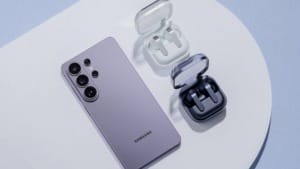Western Digital showcases AI-ready storage innovations and open ecosystem support at Computex 2025
Western Digital unveils new storage platforms and OCCL 2.0 at Computex 2025, driving AI-ready infrastructure and multi-vendor SSD flexibility.

Western Digital has announced a series of key developments at Computex 2025, reinforcing its position as a leading provider of advanced storage platforms for AI, machine learning (ML), and software-defined infrastructure. These announcements highlight the company’s commitment to disaggregated storage, open ecosystem interoperability, and customer-first innovation.
Table Of Content
The updates span product enhancements, lab expansions, and vendor partnerships, as Western Digital aims to support modern data centre demands and help cloud service providers (CSPs), enterprises, and storage-as-a-service (STaaS) providers build scalable and efficient infrastructure.
Open Composable Compatibility Lab enters next phase
One of the key highlights is the expanded capabilities of the Open Composable Compatibility Lab (OCCL) in Colorado Springs. Now entering its 2.0 phase, OCCL functions as a vendor-neutral testing environment designed to simulate real-world workloads. It allows customers to evaluate system compatibility, energy efficiency, and performance across disaggregated compute, storage, and networking components, particularly for NVMe-over-Fabrics (NVMe-oF) setups.
With OCCL 2.0, Western Digital is introducing detailed solution architecture guidance, best practice recommendations for disaggregated storage deployments, and deeper benchmarking capabilities to assess SSD partner performance. The lab also serves as a centre for knowledge-sharing and strategic insights around composable infrastructure.
OCCL’s growing ecosystem includes a broad range of partners, such as Arista Networks, Broadcom, DapuStor, Graid Technology, Ingrasys, Intel, Kioxia, MinIO, NVIDIA, OSNexus, PEAK:AIO, Phison, Sandisk, ScaleFlux, ThinkParQ GmbH/BeeGFS, and Xinnor.
New platforms target cloud and enterprise performance
At the event, Western Digital introduced the OpenFlex Data24 4100, an Ethernet Bunch of Flash (EBOF) storage device built to serve cloud-like environments where high availability is not a strict requirement. This new platform complements the existing Data24 4200 dual-port SSD model. It is equipped with single-port SSDs that optimise performance through a single connection, while system-level mirroring provides redundancy. The Data24 4100 will be available in the third calendar quarter of 2025.
In addition, the company unveiled the Ultrastar Data102 3000 ORv3 JBOD. This new JBOD adheres to Open Rack v3 (ORv3) specifications from the Open Compute Project, focusing on improved power efficiency, airflow, and manageability. It leverages shared components from the Ultrastar 3000 series, including controllers, enclosures, and Customer Replaceable Units (CRUs). The solution meets FIPS 140-3 Level 3 and TAA compliance, positioning it as a durable, future-ready option for hyperscale data centre deployments. Availability is expected in the fourth calendar quarter of 2025.
Multi-vendor SSD qualification improves customer flexibility
To support infrastructure customisation and supply chain resilience, Western Digital has broadened its qualification of SSD vendors for its platforms. SSDs from DapuStor, Kioxia, Phison, Sandisk, and ScaleFlux have already been approved, with additional providers currently undergoing evaluation.
This multi-vendor approach enables customers to choose from a wider range of suppliers while optimising for performance, cost, and availability. The initiative aligns with Western Digital’s focus on open architecture and the ability to scale smarter and faster in line with increasing data complexity.
“As workloads grow more complex and AI accelerates infrastructure demands, the future will be defined by those who can scale smarter, move faster, and deploy with confidence,” said Kurt Chan, vice president and general manager of Western Digital’s Platforms Business. “With OCCL 2.0 and our latest Platform innovations, we’re not just keeping up—we’re setting the pace for what modern, disaggregated, and software-defined data centres can achieve. We remain deeply committed to enabling open, flexible architectures that empower customers to build scalable infrastructure tailored to their evolving data needs.”
















